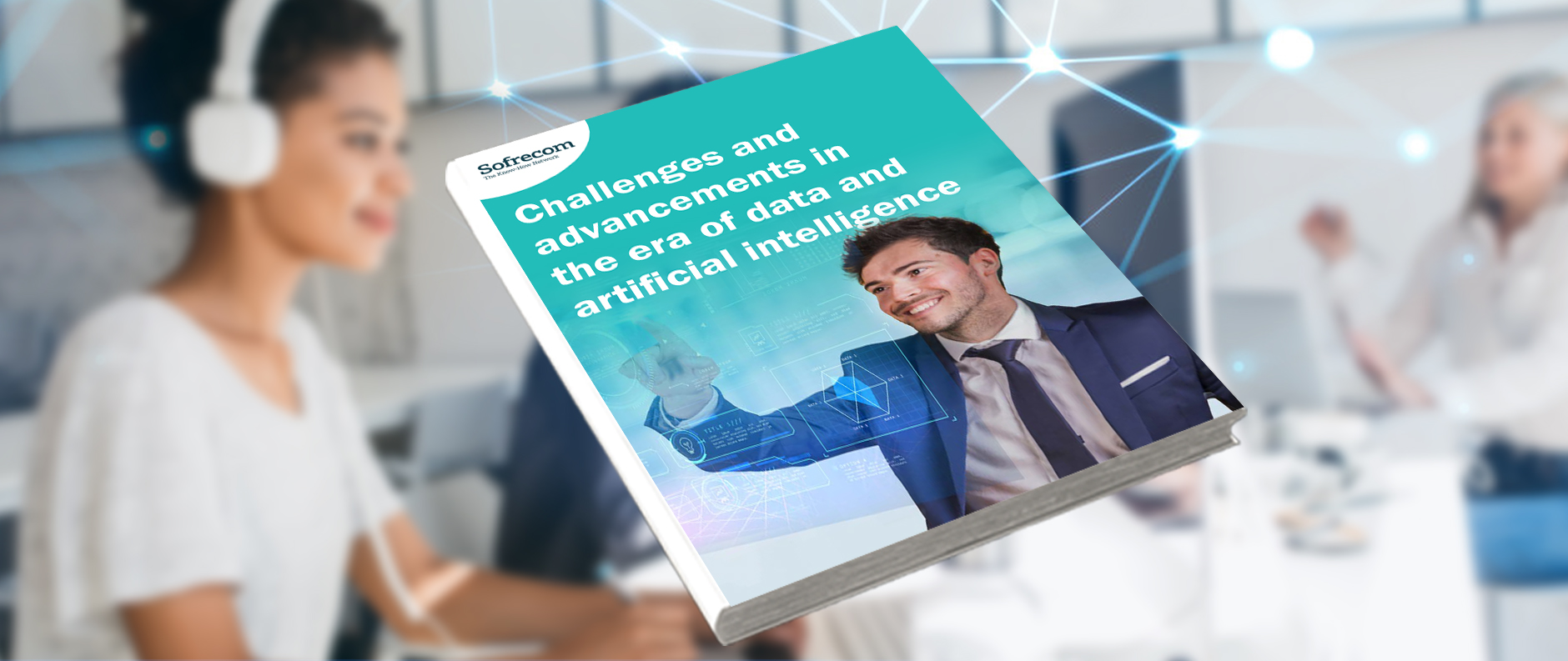
In order for AI to deliver on its promises in the field, a framework on a number of practical issues needs to be defined.
Claire Khoury

Launching participatory communication platforms for citizens without internet access, offering lifelong learning via digital technology to all populations, and putting AI at the service of essential sectors of activity are all solutions for reducing the digital divide and contributing to the social progress of humanity. As this approach is aimed at the most vulnerable people, it requires a reinforced ethical framework.
Worldwide, there are large disparities in access to health, education and many other areas. The UN Sustainable Development Goal #10 aims to reduce inequality by helping the world's most vulnerable people. According to a recent report by the Global System Operators' Association (GSMA), 80% of the population in developing countries own a cell phone, but nearly 1.7 billion women do not!
In wealthy countries, artificial intelligence and machine learning are becoming part of everyday life. People who live in connected places have access to the information they need to survive, as well as access to quality education and medical care. These advances remain out of reach for many of the world's poorly connected or unconnected populations, who risk missing out on the artificial intelligence and machine learning train.
Insufficient exploitation of AI and Data
The inequitable distribution of information sources and content deprives a significant portion of the world's population of access to the information they need to succeed in life.
These systemic challenges are based on a lack of infrastructure (insufficient number of cell phone base stations in the community, lack of means to acquire a cell phone) and a lack of appropriate content, not to mention prejudices related to ethnic origin, beliefs and culture.
According to the ITU, 2 billion people still did not have access to the Internet in 2020 and were therefore excluded from the artificial intelligence revolution. So how do we bridge this divide?
Insufficient exploitation of AI and Data
According to a 2016 report by the United Nations Educational, Scientific and Cultural Organization (UNESCO), there are currently 758 million illiterate adults in the world, about two-thirds of whom are women.
AI specialists need to think of everyone when innovating in this field: for example, incorporate local languages that have few resources devoted to them, so that AI knowledge can be disseminated to more diverse populations.
From a gender equality perspective, particular attention must be paid to the data itself, so as not to further exacerbate disparities in the multiple communities where they are observed.
In many systems, it is the engineers who choose the characteristics of the data from which the algorithms will build their models. Thus, although a computer is not inherently biased, the code it executes may contain assumptions that reflect the implicit or unconscious biases of its human authors. Therefore, exploiting artificial intelligence in its current state, without careful scrutiny by experts, risks widening the digital divide and harming the most vulnerable people in the societies concerned.
Providing lifelong learning
Artificial intelligence will remove repetitive tasks and "to thrive in a digital work environment, workers will need not only digital skills but also a variety of skills, both cognitive and socio-emotional," according to the 2019 edition of the Skills Outlook published by the Organization for Economic Cooperation and Development. In order to include all populations in the digital shift and the removal of repetitive tasks taken over by artificial intelligence, the OECD notes that "strengthening lifelong learning is key for all workers and citizens to adapt to changes in the world of work and society." The organization is therefore calling on governments to make training systems more responsive to changes in the labor market by improving the continuous training of teachers.
Providing participatory communication platforms
The massive digitization of human activities is producing a huge volume of data that artificial intelligence applications and solutions need.
The convergence of computing power and mega-data is enabling data scientists and engineers to create artificial intelligence applications and solutions that can solve increasingly complex problems. Many of these applications and solutions are helping to bridge the digital divide and create an inclusive society. For example, during the Ebola campaign in Sierra Leone in 2014, IBM Research (Africa) created a participatory communication platform for the country's residents to inform the government of their situation.
Putting AI solutions at the service of human capabilities
The most effective, but still under-researched, approach to leveraging artificial intelligence to bridge the digital divide is to combine AI solutions with human capabilities.
The Food and Agriculture Organization of the United Nations recommends, for example, that there be one agricultural extension specialist for every 400 farmers. In Africa, however, there is an average of one specialist for every 3,000 farmers. These specialists have proven critical to the transformation of agriculture in the United States, and they could play an equivalent role in the developing world.
Importance of ethics in technology implementation
Artificial intelligence experts have a considerable responsibility to work with the most vulnerable people in the world. It is imperative that they be ethical and transparent with these populations when implementing AI-based technologies.
In order for AI to deliver on its promises in the field, a framework on a number of practical issues needs to be defined. It is therefore up to governments to develop the means to understand and challenge all aspects of the data value chain.
As for artificial intelligence specialists, they will ensure that the population is well informed about the data they are exploiting. They will validate the way they analyze the data as well as the assumptions that underlie the insights derived from their analyses.
Extract from our white paper : Challenges and advancements in the era of data and artificial intelligence






